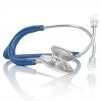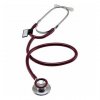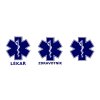Sister, influencer, mom - all this is Bc. Lucie Černá, MBA aka @czechnurse, a general nurse who graduated from the 3rd Medical Faculty of Charles University. She has won the hearts of thousands of Instagram followers with her authentic approach and openness. Under her account is an inspiring story of a woman who is not afraid to combine the demanding profession of a nurse and sharing her experiences on social media. She has dedicated her profile to patients and online education dedicated to modern nursing, prevention and an overall healthy lifestyle. What is the job description of a nurse, what led Lucie to finish her medical studies and how does she perceive the current state of the Czech healthcare system?
Read the interview in which she and our doctor Jana Tomanová talked about the Czech healthcare system.
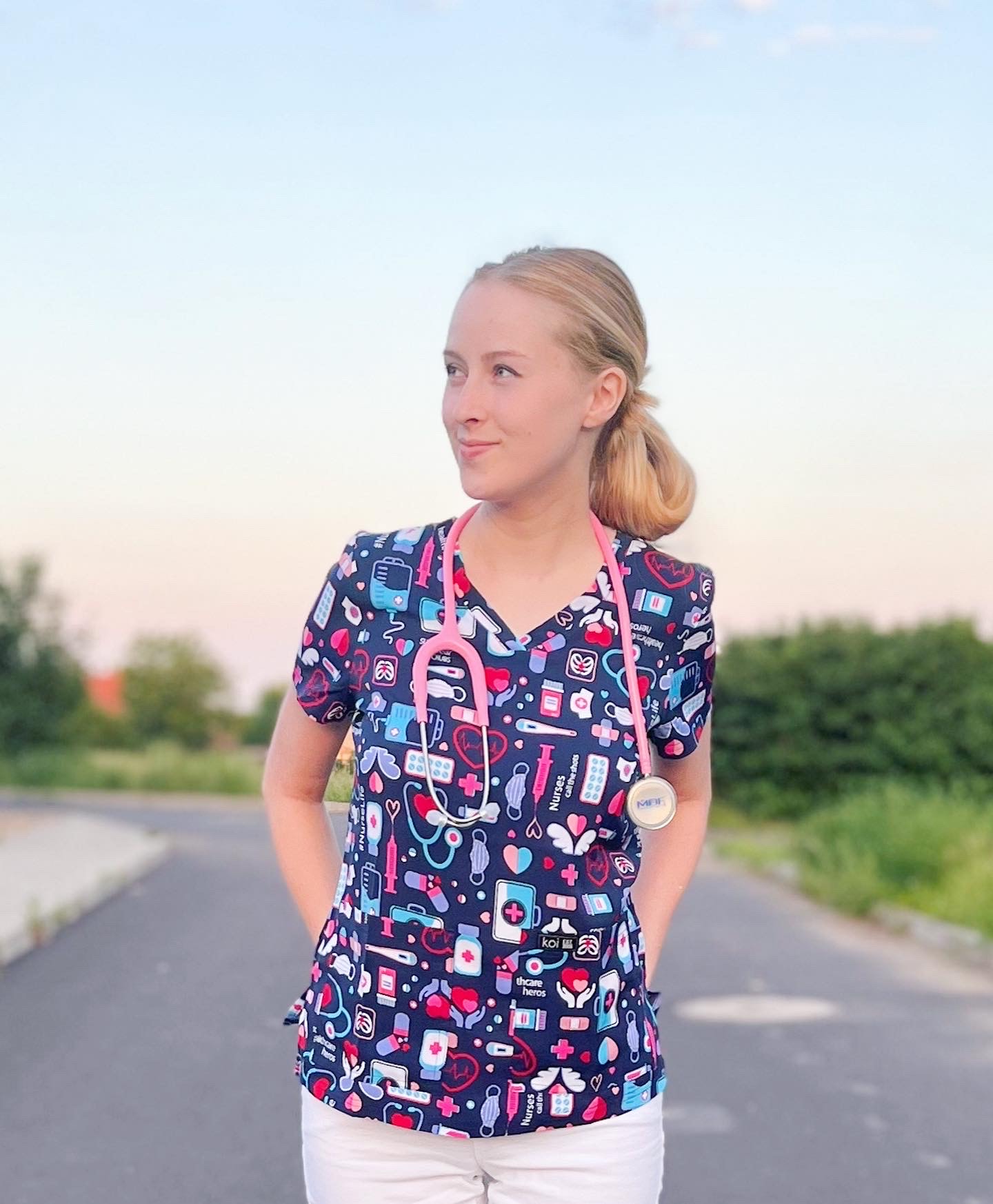
When did you decide to go into the medical field? Did you always know this was your path?
My first thoughts about working in healthcare were in kindergarten and first grade of elementary school. From primary school I went to an eight-year high school and there I practically knew that I was drawn to healthcare as such and that I wanted to help people through the healthcare system in the future. You could say I always knew I wanted to work in healthcare :).
Wow, did you also have one specific moment or motive that made the decision?
My family is full of healthcare professionals (smile), from physiotherapists to doctors. In the previous generation, even rehabilitation nurses and of course general nurses, midwives as well. The extended family actually only works in the health sector, we are a medical family (laughs).
You studied general medicine first. How long?
I studied general medicine for one year, and practically from the first semester I knew that I would rather follow the path of general nursing than general medicine. My path to becoming a general nurse was quite a winding one, after high school I went to science school and toyed with the idea of becoming a microbiologist or something like that.
Could you say when the moment came for you when you realized that this is not what you want to study and then do in the future?
In my first year we had a course in nursing and the associated nursing practice as such. I did these internships in surgery where we were taken to do things like dressings. It was on this occasion that I first saw nurses in action and that was the moment when I said I wanted to do this job too.
How did your immediate circle take leaving medicine at that time?
Well, more or less badly. I think that in the Czech Republic, the general nurse is not quite on a pedestal yet, which of course the medical profession is and always has been, and those closest to me took it that I was leaving something that every high school student wanted to study and I was going to study something that wasn't so much in demand from that high school, so I guess they also took it as a bad decision, which I didn't see it that way.
So why did you end up deciding to study general nursing? Did you ever regret that decision?
I was really drawn to the profession, I wanted to be in direct contact with patients. And I practically never regretted my decision to change my studies in the sense that I thought, "Yeah, I made a mistake".
Jana: That's really cool, beautiful.
Is there anything you'd like to know before entering your first year (either medical school or general nursing)? What was the most stressful thing for you at the beginning of your studies?
Overall, I would have been happy if someone had told me back in high school that I shouldn't stress over learning 2 pages when I'll have to learn 20 pages in a day once and it will seem fine. I think that for this, it would be nice to have a course or subject already in high school dedicated to speed reading and how to learn effectively in general. You come out of high school into college and the learning style along with the volume is completely different. You come in and see what and how, a lot of times you miss a lot of things in the beginning too. When I transferred, I mean from high school to a vocational school, I found that the scope of the curriculum was diametrically different, it was a big shock, so for example, some preparatory month dedicated to the organization of the curriculum as such, the opportunity to get a feel for it and to learn how to learn would have helped me tremendously.
Jana: Look, I didn't learn how to study until my fourth year, but then I started getting straight A's when I figured out what I was most comfortable with. And I feel the same way.
Well, what stressed me out the most? The amount of learning. I felt like one week in college was like half a year in high school. The amount was very hard to process mentally in the beginning, and my brain had to get used to it too.
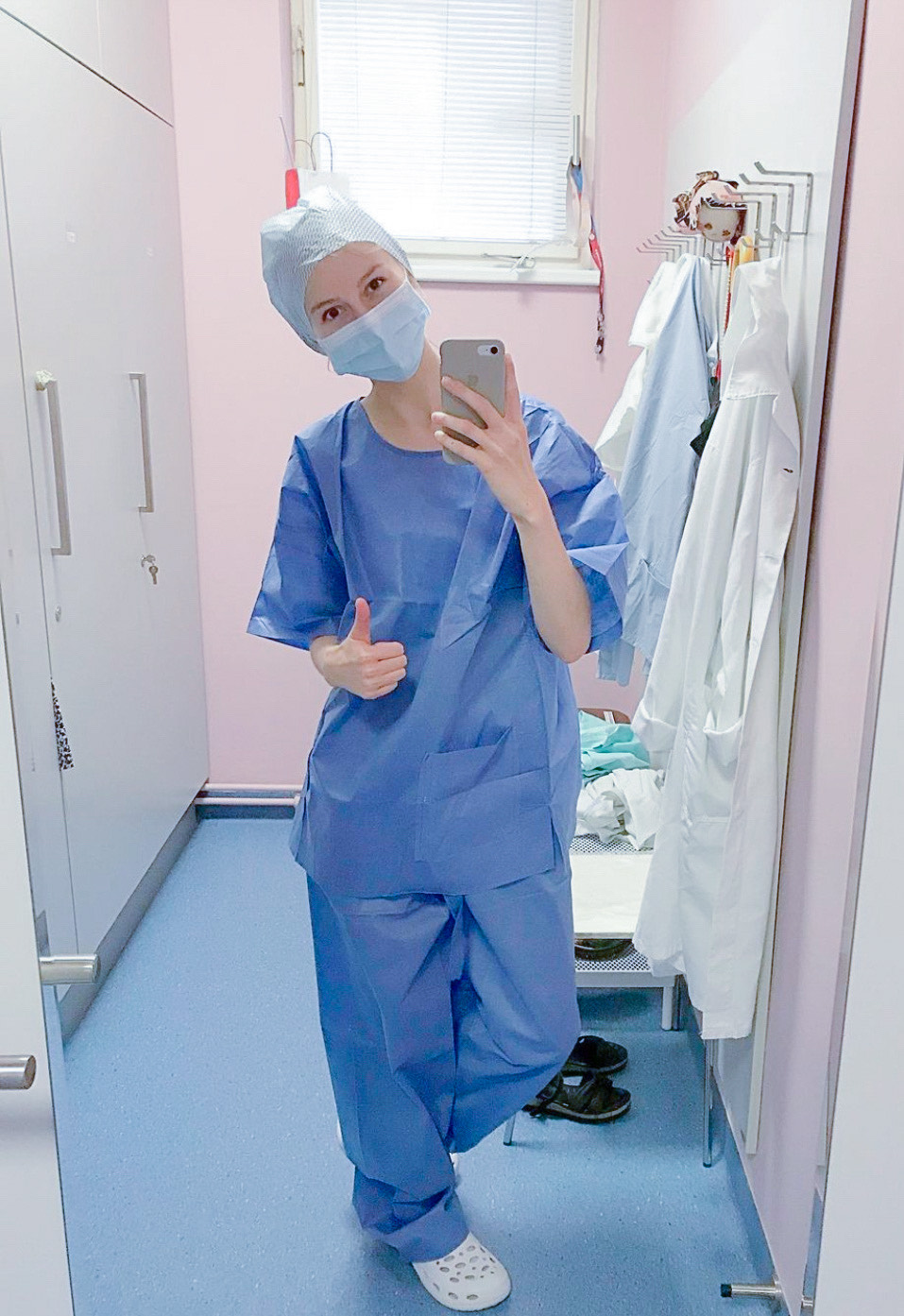
How would you describe your studies as a general nurse, did you find them enjoyable/fulfilling?
I enjoyed my studies, I'm sure there were better and worse times. We had placements and lots of vocational subjects, both were balanced in time. There were 2300 hours of theory and 2300 hours of practice, which is definitely not too little. It's like going to work for 9 months. A nurse coming out of college has had 9 months of working around different wards and hospitals, which is not exactly a little. I've been through hell at worse jobs at times, but I still found my studies incredibly fulfilling.
What about internships as part of your studies? Are they salaried when you're doing real work?
The internships are in school, so they're not salaried. Departments and disciplines often change during the internship. Sometimes you get a choice, so if you want to profile yourself in the direction of cardiology for example, which is what I wanted, I had a lot of work experience in cardiology, cardiology standard and ICU.
Once you have been in the department for a while, you have experienced its operation and you are part of the team, it is really a pity that your work is not rewarded, in terms of salary, because you lose a bit of motivation.
Jana: And yet you're actually more or less a full-fledged article, and I dare say I think that those departments are often saved by the students on internships. Isn't that a problem? The interns often help the running of the department very much.
I think that's a problem. Internships are supposed to be for the future nurse to learn something new, but often students are seen by other staff as an auxiliary force. The moment a student is on a standard inpatient ward for 200 hours and practically works there as an orderly, not learning new tasks, then it should be paid for.
Jana: I've had a few of those placements too, we had a nursing placement during the course of my studies too and it's definitely department by department, but realistically did you learn everything you needed to do your job on placement?
There were wards and placements where I learned more in a week than I did in others in a whole month. The placements really gave me a lot, when I came in theoretically prepared as well, it all connected beautifully and defacto I learned everything I need to work as a general nurse. However, there were wards where we were just seen as a workforce and there you learn very little, which wasn't ideal.
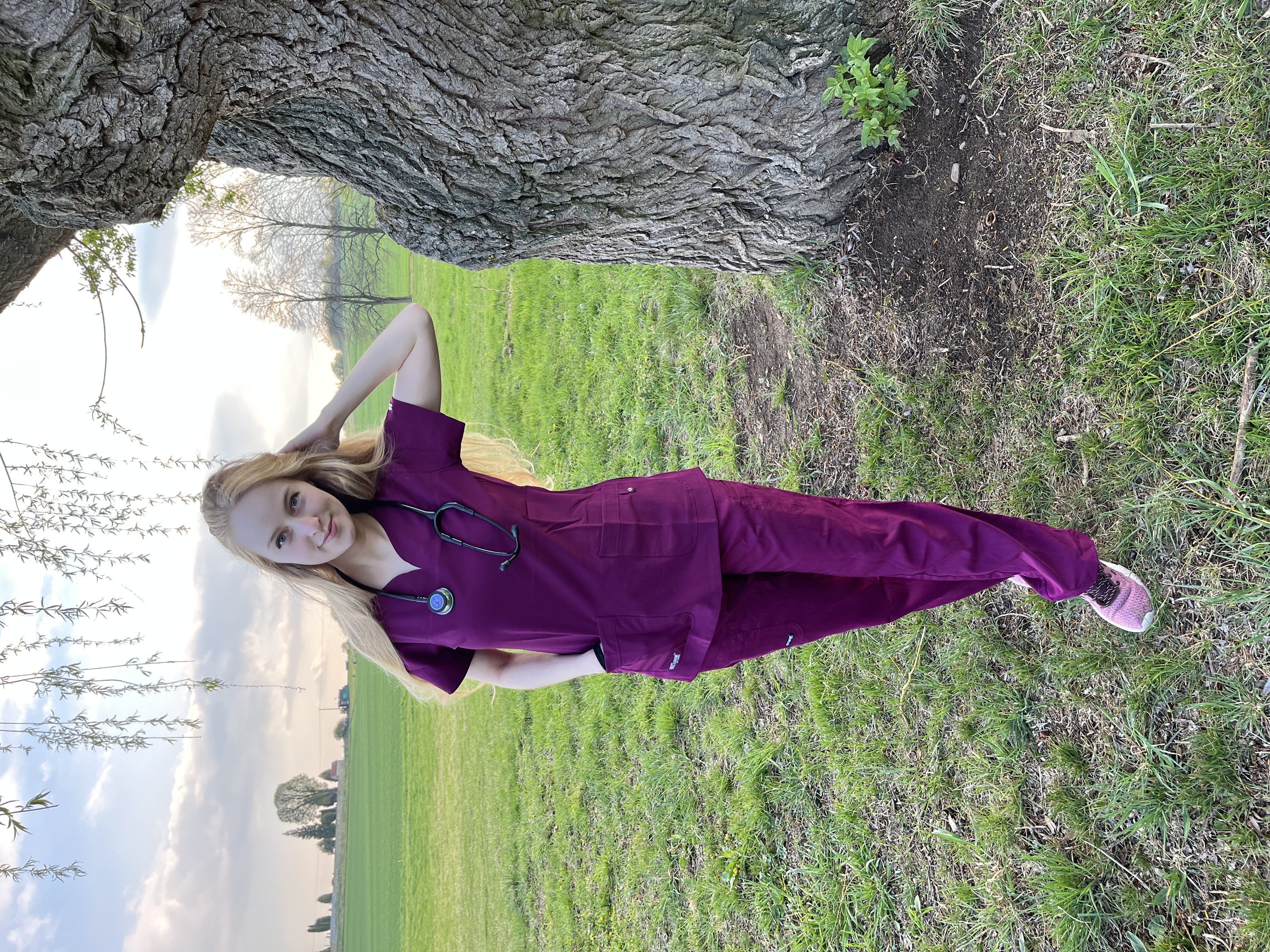
What does being a nurse mean to you?
It means for me to be a meaningful part of society. I think there's a problem in general nowadays where people are often looking for and can't find their purpose, and that work that is very rewarding to the environment gives you a certain sense of fulfilment and meaning, so that's one thing. And the other thing is that not all fields have the opportunity to profile in different directions, and in general nursing there are lots of those opportunities. I can work in cardiology for 10 years and then decide to change fields, which I think is really cool. Being able to do work, and meaningful work at that, in multiple directions can be a great motivator.
What do you see as the main difference in the work of a nurse and a doctor?
I would like to say one thing here, which I also shared on my profile, and it caused a lot of controversy, and I don't want to sound bad towards doctors, because we are collaborators and we are a team. It was the thing that a patient is in hospital because he needs a nurse. It was told to us by a teacher who was very well educated, she was a doctor in nursing, and there is some truth in that. Because doctors examine, diagnose and prescribe treatment, whereas nurses are in constant contact with the patient and often carry out that treatment. I'm not saying that it's strictly separated, but if a patient didn't need a nurse, he would go to the outpatient clinic, get examined, diagnosed, prescribed medication and lie at home. If he needed surgery, he'd have outpatient surgery and then come in for check-ups. But what the patient actually needs is a nurse to take care of him in terms of administering medication, hygiene, providing nutrition, taking care of the patient in a holistic way. That's where I see the fundamental difference, that the nurse is the executor of the treatment, the care prescribed by the doctor and spends much more time with the patient.
Jana: I see a difference there in that if the patient didn't need a nurse and a doctor who at that moment is choosing the treatment and doing the diagnostic and therapeutic procedure, he probably wouldn't be there either. I try to look at it as a whole and I see a lot of that difference there in that you as nurses have the opportunity, the gift of being with the patient for a greater amount of time. On the one hand, I think that's a shame, because often I don't have a lot of time to spend with the patient, and I don't have a lot of space to give them more. At the same time, I would like it to be said that it was made very clear to us in teaching that it is a team effort and the nurse is an extension of the doctor, and that the doctor cannot do without the nurse, we help each other, and it seems to me a great pity that there is a tendency to keep dividing it up, comparing, etc.
Lucie: Yes, exactly, the tendency to keep it strictly separate, to show each other who has studied longer and so on, I find that a terrible shame. And this was already helped by interdisciplinary teaching at the faculty, for example, the medics taught us anatomy and we taught them nursing stuff. I thought that was very cool. That the faculty already had that collaboration.
Jana: I would add that I myself have been in a situation where if I didn't have an attentive nurse on the ward who noticed a detail that I didn't, it could delay the diagnostic process and thus the treatment. It is important to have nurses on the wards and I personally as a young doctor feel and use that experience. We have absolutely brilliant nurses on our infection ward who know rotavirus by sight.
Abroad, the nurse commonly uses a phonendoscope in her work. Do you think it should be the same here? And why?
The nurse is an extension of the doctor's hand, his eyes and ears. I'm not saying that the nurse should examine the heart and diagnose diseases and arrhythmias, not at all, but I think it would be awfully nice if, for example, she perceived that the patient's ventilation is deteriorating or there is a difference from the previous day. If the nurses had this memorized and also by spending more time with the patient, they would be able to point out any deviations from normal sooner.
Jana: I agree.
Currently, nurses use a phonendoscope to measure the pressure because digital blood pressure monitors are not always given in bulk for check-ups and it was common in our practice that they measured a completely different value within 3 measurements or were discharged, but manual blood pressure monitors are commonly used. We also use a phonendoscope to insert a nasogastric probe, but this is not that common. I've encountered this myself in practice about twice. Otherwise, nurses in the Czech Republic generally do not use the phonendoscope very much, some nurses do, of course, but in teaching hospitals it seems to me that it is not a habit and I think it is a pity. It is due to the system, the substations on all wards lead to the fact that nurses are often forced to do the work for the orderly, who is often not present on night duty. The general nurse is then unable to do the specialist work she has studied for, knows how to do and should be doing because there is no capacity left to do it. If there were enough orderlies, nurses and GPs, I think the work of GPs would be different.
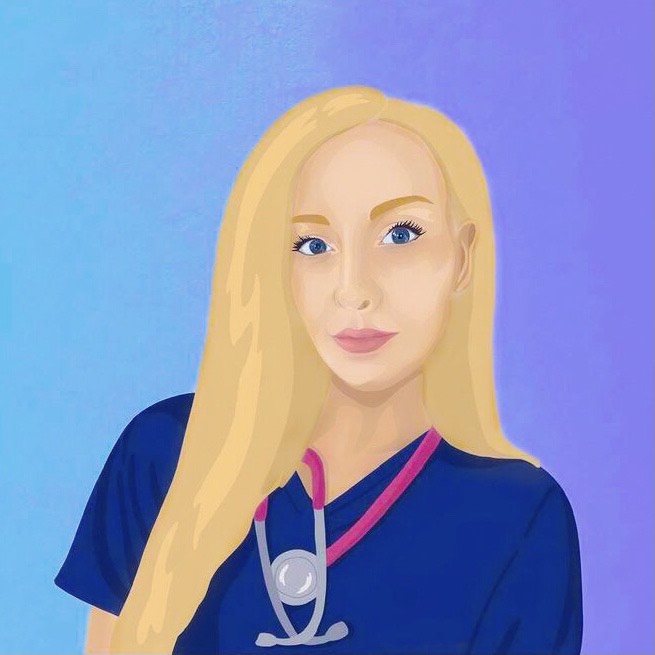
It's probably no secret that working in healthcare involves a huge amount of administration. Would you say that despite all this, there is enough time for patient care?
I think there is so much administration at work that it can often take away from time for patient care. It's not always digital, which is a huge shame. If there was a simple digitised system where the nurse would click it all in and have certain formulas pre-set, it would save a lot of time. Of course, the documentation needs to be kept, but the question is whether it would be better digitised.
The big disadvantage of the current bureaucracy from my point of view is that every new doctor a patient goes to within the hospitals reports their entire personal history, social history and family history. Why isn't that summarized somewhere? Seems like a waste of time to me and one could carry it around on a flash drive many times. Patients may have trouble remembering everything correctly, helpful notes in their wallet are unreadable/blurry... If everything was in some form of digital system that was accessible to doctors within these histories, the process of initial patient intake would be more efficient and easier.
Recently I have noticed a shortage of general nurses in hospitals and a move to the private sector. Do you notice it too and why do you think it's happening?
Definitely, there are several factors. One of the main ones is the shortage of orderlies, nurses and nurse practitioners, so a general nurse is doing the work for 3 people, 3 professions, 3 disciplines. If we go to work in the style of sixteen 12-hour shifts a month, it's a very quick road to burnout, and so often the best solution is to go to a job that you won't enjoy so much, but will be physically and mentally much calmer. Even if it's lower pay and not your dream job.
Jana: So I hope it will get better somehow, because it's getting pretty unsustainable.
Overall, salaries are a chapter in themselves. I'm not surprised that nurses who learn the language go abroad. Salary and the standard of living associated with it plays a significant role. It has improved a lot in recent years, but it is still not ideal. On the one hand, it is nice to say that it is a mission, but a mission does not buy you a house or food, and at a time when real estate is the most expensive in a country in terms of salary to purchase ratio and inflation to that, I find it so sad.
You run a successful instagram profile @czechnurse, what made you start it? What was your initial idea?
I started the profile at the time of the first covid crisis, and it seemed like a good opportunity to show people, not only in the healthcare sector but also to the lay public, what a general nurse does and what the job of nurses is in general. The profession of general nursing is still seen by a lot of people as an arse-wiping profession and I thought it was a good opportunity to show that it's not just about that. It saddens me that even today a lot of people still see the nursing profession as inferior. Hygiene and human intimacy, when I enter a person's intimate zone, especially when it's a patient, requires a huge amount of trust and a level of professionalism and it can't be done by a guy off the street.
What drove me to start the profile was the desire to show what the work is about, to reduce the stigma of the profession and to show that what was somehow done 20 or 30 years ago can be completely different now. In the US and Scandinavian countries, nurses regularly top the list of respected professions, so why not here? I want to show that the profession is beautiful, meaningful, not easy and necessary.
In the beginning you were anonymous on your instagram, what made you reveal your identity?
It was very spontaneous and it was prompted by a controversial post of mine. It was about how obesity is a disease and should be addressed. Whereupon a very well-known influencer reacted indignantly to the post and her fan base started to report the profile en masse along with the post. As a consequence, I almost lost my profile. I wanted to make sure that the moment I did lose it, there would be an option and a way for people to find me on my personal account. Because at the time, I had a lot of students and people writing to me for advice and tips and it seemed a shame to just disappear off the face of the earth. I think my post at the time was a sting in the hornet's nest, although it wasn't directed at anyone in particular.
What do you do on your instagram profile? Is there anything in particular that you want to pass on to your community?
I cover a lot of topics on my profile: health, nursing, healthcare and health news. I feel like sometimes I get lost in it myself and I've already covered all the topics and I have this tendency to create trending videos, funny videos to keep the profile going and they don't realize that new people are coming to the profile and maybe they haven't seen the topics that I've already covered, they haven't discussed it and it's gotten a bit bogged down in the 300 posts that I have on the profile. And it can be difficult for new users to find them. When I create, I focus most on the topic of modern nursing, awareness and education, and I try to make sure that everyone, whether regular followers or new visitors, take away useful information or have a laugh.
Aside from being a nurse and being active on social media, you're also a mom. How do you juggle everything?
I don't (laughs). It seems like on social media, you're managing everything and you're fine. The reality is often different and sometimes I feel like I'm standing still and doing nothing. It's challenging, or it's challenging every day with a small child.
Jana: Thank you for putting it that way, because I think quite often, especially in those early years of a child, it's presented a little bit differently on social media than it might actually be.
I think the nature of the child is important as well and how active the child is, there are girls who can go through medical school with a child and get certified without a break and without a problem, I admire that incredibly. I'm not the type, I couldn't manage to do 10 things at once, it's enough that I do 9 (laughs).
Is there anything you'd say to future nurses?
I would tell the nurses, and myself, that our work is extremely important. To be patient and empathetic and not to forget too much about our own peace and balance so that we don't slip into burnout syndrome. We, along with other health professions, are the backbone of the healthcare system and we make the world a nicer (better) place.
Jana: Beautifully put, our conversation made me realize that what I do is meaningful.
Thank you very much for the interview and we wish Lucia, aka Czechnurse, all the best on her life journey
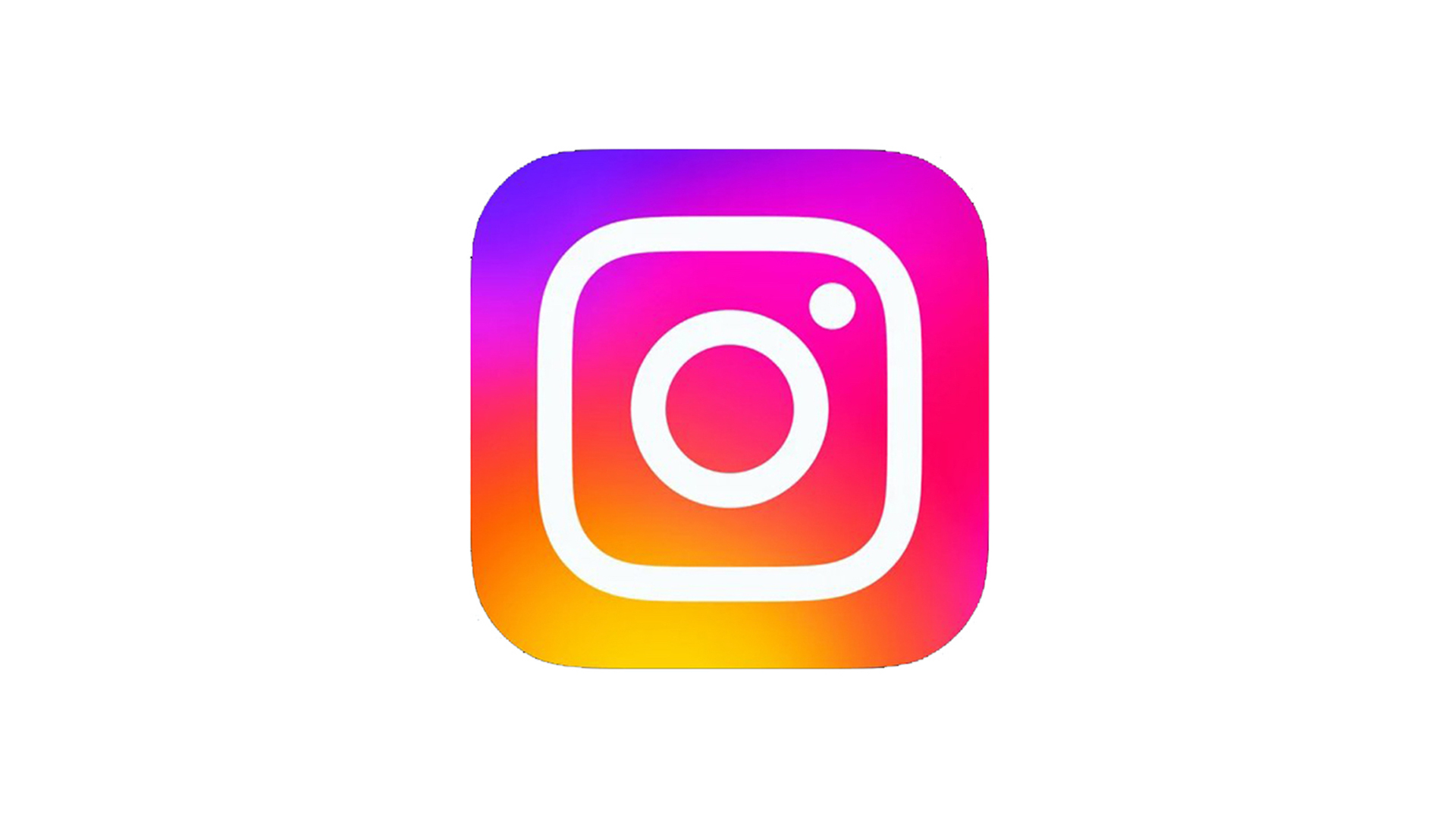 @czechnurse
@czechnurse
Article written by: Jana and Daniela



